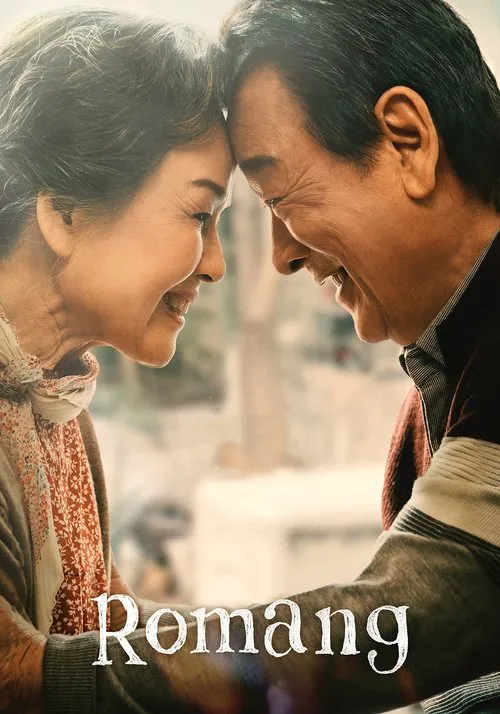Romang

あらすじ
Romang is a poignant South Korean drama film directed by Han Joon Woo, which delves into the lives of a 75-year-old couple, Cho Nam-bong and Lee Mae-ja, who are struggling with Alzheimer's disease. The film is a heart-wrenching exploration of love, memories, and the complexities of relationships as they navigate the devastating effects of dementia. The film opens with a poignant portrayal of the couple's daily life, where they are unable to recall even the simplest of memories. Their conversations are riddled with awkward silences, and their interactions are strained. Despite being married for 45 years, they have lost touch with their feelings for each other, and their relationship has become stale. As the days go by, Nam-bong and Mae-ja begin to regress further into their dementia, losing control of their emotions, and struggling to perform even the most basic tasks. Their daily routine is a blur, and their lives become a series of repetitive, disconnected moments. However, amidst this backdrop of suffering, a magical quality begins to emerge. Dreams start to take center stage in the film, as Nam-bong and Mae-ja begin to slip into a fantastical world of memories and imagination. These dreams are not just a manifestation of their subconscious mind but also a representation of their deepest desires and emotions. In these surreal sequences, the couple rekindles their romance, and their love becomes the driving force of the film. The dreams allow Nam-bong and Mae-ja to relive their happiest moments together, from their early days of courtship to the birth of their children. These memories are not just fragmented recollections but also a testament to the depth of their love. As their dreams evolve, so does their relationship. They begin to recapture the lost passion and intimacy they once shared, and their bond becomes stronger. These surreal sequences are intertwined with the harsh realities of their lives. The camera pans over the mundane surroundings, revealing the couple's struggles to cope with the loss of their memories and their relationships with their children. The children, overwhelmed by their parents' condition, are often insensitive and dismissive, adding to the emotional turmoil. Throughout the film, the director's sensitive touch is evident in the way he captures the complexities of the relationship. The cinematography is raw and emotional, with the camera often lingering on the couple's faces, capturing their pain and their longing. The dialogue is sparse, but it conveys the depth of their emotions, and the performances by the leads, Kim Ho-jung and Kim Gyu-ri, are nothing short of remarkable. As the film progresses, it becomes clear that the dreams are not just a form of escapism but also a manifestation of their desire to hold on to their love. Despite their condition, Nam-bong and Mae-ja refuse to give up on each other, and their dreams become their lifeline. The film becomes a poignant tribute to the power of love, a reminder that even in the darkest of moments, it can be a source of strength and comfort. The title of the film, Romang, which translates to "Love Story" in English, is a fitting encapsulation of the narrative. The film is a love story, a story of two people who have traversed the ups and downs of life together, and are now fighting to hold on to their love. As the credits roll, and the couple's dreams fade away, the audience is left with a haunting sense of loss, a poignant reminder of the fragility of life and love. Romang is a powerful and emotional film that will leave viewers moved. It is a poignant exploration of the complexities of relationships, the power of love, and the human spirit's capacity to endure even in the face of adversity. With its raw emotion, beautiful cinematography, and a powerful narrative, the film is a must-watch for anyone interested in South Korean cinema.
レビュー
おすすめ




